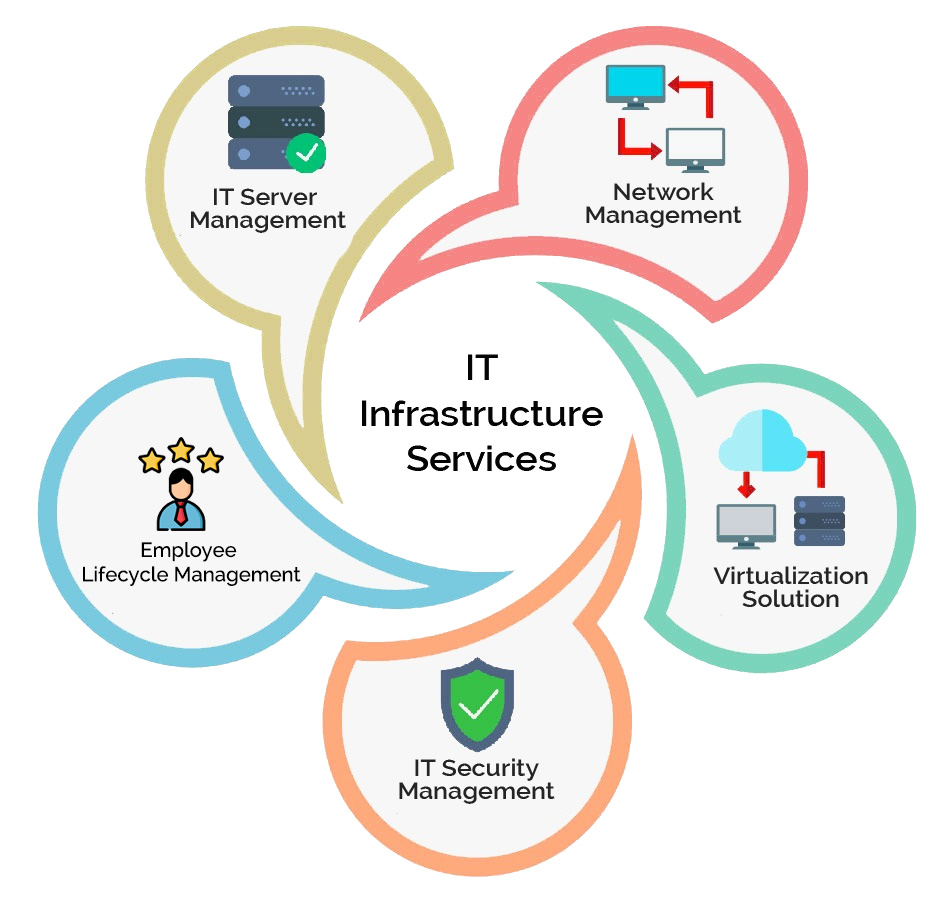Managed IT Infrastructure
Let a trusted partner run your IT infrastructure and bring in the right efficiencies and processes to complement the efforts of the technical teams. Successful DevOps implementation needs robust and well-connected IT infrastructure.

Typical components of IT infrastructure
- Identity. The organization needs a system to store employee identities. The identities involve usernames, passwords, certificates and a few attributes. Typically Active Directory, LDAP or third-party IdaaS is used to store identities. The identity systems often needs to be integrated with HR system.
- SSO. Once the identity solution is in place, connecting the directory server to applications and services becomes possible. Standard protocols such as SAML, OAuth, OpenID Connect and SCIM pave the way for seamless single sign-on experience.
- RADIUS.For teams that work from offices, seamless integration into corporate wired and wireless networks is a necessity. Network services based on RADIUS protocols enables the organization to automate access control to corporate networks.
- Corporate email server. By and large organizations tend to utilize SaaS services for email and calendaring needs. In certain situations like regulated industries, owning and operating a corporate email server is a requirement.
- File server. Office environments have a shared file server.
- Shared object storage. Internet based file sharing systems such as Dropbox, Google Drive, OneDrive, etc have gained popularity. Open source solutions such as NextCloud have also gained traction.
- VPN. Companies protect their IP by enabling the employees to connect to the services via secure VPNs. For small teams a single centralized VPN often delivers the required secure tunnels. For larger companies with presence of workloads in multiple clouds or hybrid environments a complex VPN system is required.